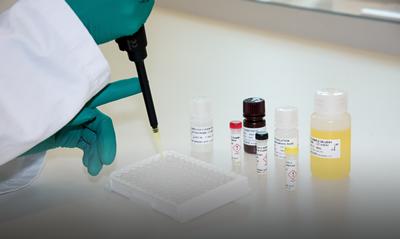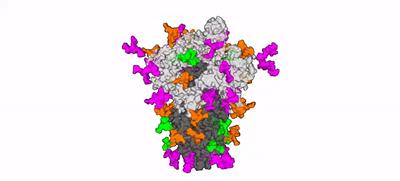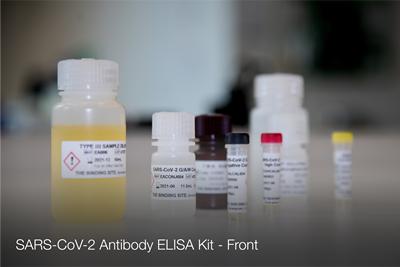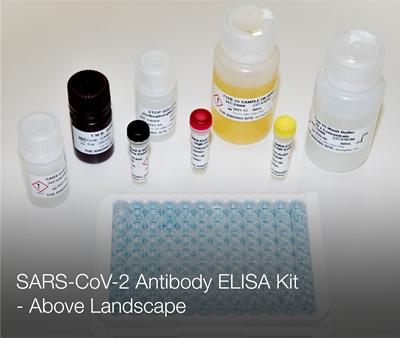Southampton research helps deliver high quality COVID-19 antibody test

Research by the University of Southampton has paved the way for experts in Birmingham to develop a new test to detect COVID-19 antibodies in people with recent exposure who have mild symptoms.
With the focus on mild non-hospitalised patient blood samples, the SARS-CoV-2 Antibody ELISA assay was has been developed by immunodiagnostics manufacturer The Binding Site and the University of Birmingham’s Clinical Immunology Service with the initial antigen being provided by Max Crispin, Professor of Glycobiology at the University of Southampton.

Earlier this year, research by Professor Crispin revealed the fundamental properties of the protein “spike” on the surface of the coronavirus. This has enabled his team, including PhD students Joel Allen and Yasunori Watanabe, to produce almost exact copies of the protein which they provided to the Birmingham teams to develop their antibody tests.
The new test specifically detects antibodies (IgG, IgA, and IgM) to the SARS-CoV-2 trimeric spike protein, which is an important protein for the virus infectivity. Targeting IgG, IgA, and IgM the assay will cover all the immunoglobulins which are vital in the body’s fight against this virus. These three antibodies appear at different times after infection. The test was designed to detect all three, to increase detection at the earliest possible stage after exposure to the virus.
Professor Crispin, explains: “The creation of sensitive antibody tests rely on being able to create accurate mimics of components of the virus. We have been delighted to help setup the Binding Site’s COVID-19 antibody test by manufacturing the SARS-CoV-2 viral spike glycoprotein for the clinical and academic partners at the University of Birmingham."
Professor Adam Cunningham, Professor of Functional Immunity at the University of Birmingham said: “Humans make three types of antibodies – Anti-IgM, IgG and IgA. IgM tends to appear first, and IgG and lgA tend to appear later. By combining all three The Binding Site test is able to detect COVID-19 infection in people who have only recently been exposed, or who have mild symptoms.”
The CE-marked ELISA test is simple to use and provides up to 93 test results in 60-90 minutes.
Dr Stephen Harding, Chief Scientific Officer at The Binding Site added: “We set out to develop a test with the University of Birmingham that would detect COVID-19 early, and validated the test in a non-hospitalised population that had mild symptoms – which is the largest target population for COVID-19 testing - and we designed the testing kit so it can be used by any laboratory in the world.”
The test was developed using over 800 blood samples taken from people who had mild to moderate disease including over 100 samples from healthcare workers in Birmingham.
It is already being used in many of the clinical studies conducted at Birmingham hospitals, and is expected to be rapidly adopted by surveillance teams seeking to understand the distribution of infection in the population, as well as vaccine researchers who need to assess antibody responses in clinical trials.
Professor Crispin goes on to explain, “Supporting the development of highly sensitive antibody tests has been an important component of the University of Southampton's COVID-19 response and has been made possible by the laboratory work of a team of undergraduate and post-graduate students within the School of Biological Sciences."

